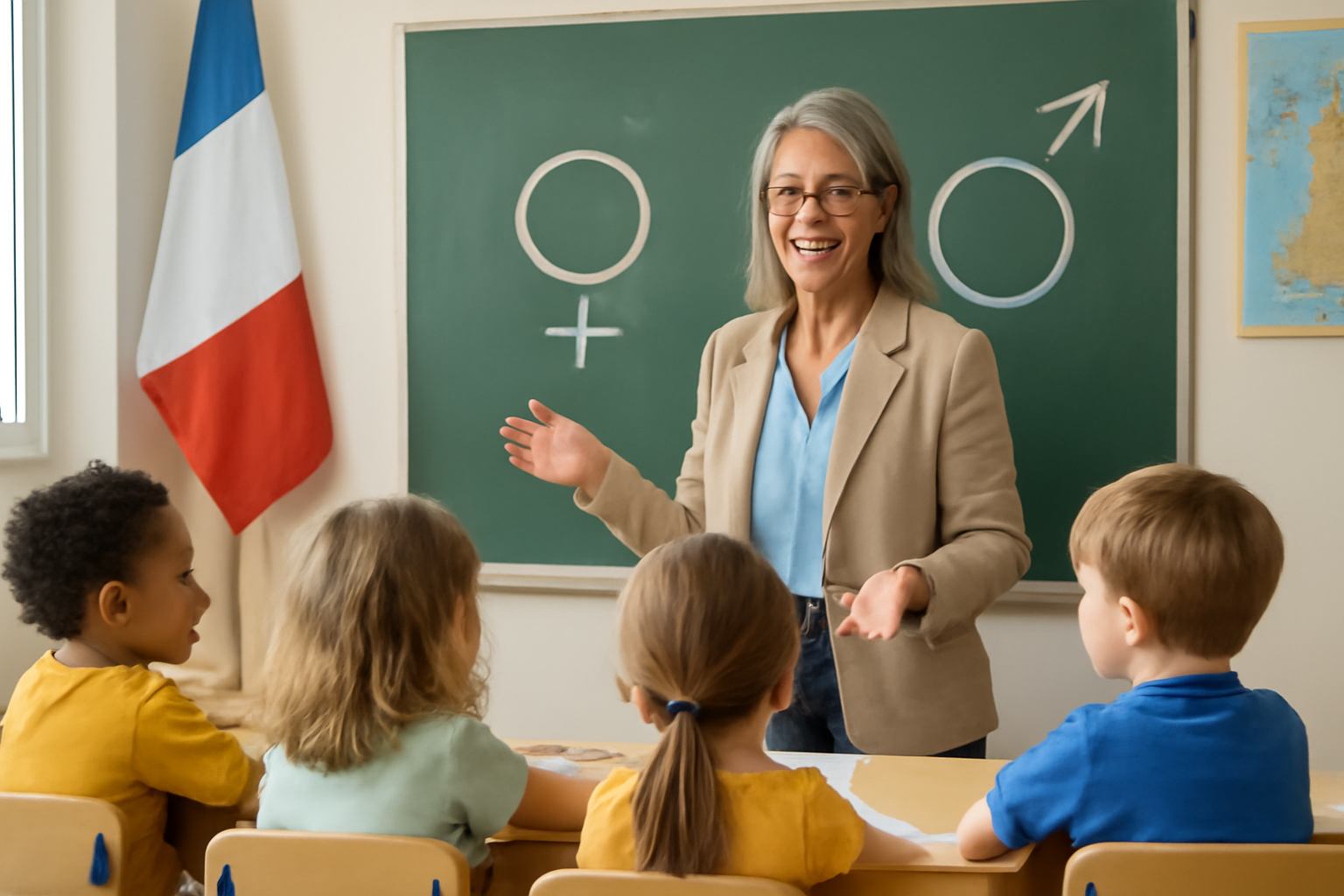
In a groundbreaking move, the French government is set to introduce comprehensive lessons on gender equality and consent into the educational curriculum for young children, starting at age four, in both public and private schools across the country.
French Education Minister Elisabeth Borne has announced a transformative plan aimed at overhauling the current sex education syllabus. This initiative is designed to address issues of sexual violence and promote respect towards women and girls by integrating these crucial topics into the school environment.
Speaking to a national radio station, Minister Borne emphasized the importance of these educational reforms: "Understanding the dynamics of love, relationships, and sexuality is absolutely essential in the modern age." This change in the curriculum is set to be implemented following the summer holidays, introducing a structured schedule of three sex education sessions per year for students in primary, middle, and secondary schools.
The new curriculum is uniquely tailored to include age-appropriate discussions. For instance, children as young as four will engage in lessons that cover gender identity and biological sex. According to the details of the plan, young students will learn scientific terminology related to human anatomy and begin to explore foundational concepts of equality and consent.
Minister Borne reassured that the program's content would be "carefully adjusted to match the pupils’ age and level of maturity." This approach includes practical elements such as role-playing activities. For example, children might practice scenarios like asking, "Can I hold your hand?" to learn the importance and acceptability of saying "no."
As students progress through the educational system, the complexity of the topics discussed will increase. By the age of 13, students will delve into understanding the distinctions between biological sex, gender, and sexual orientation. This is intended to foster a deeper comprehension of these concepts and their applications in everyday life.
At age 14, the curriculum will expand to cover the multifaceted nature of sexuality, including discussions on pleasure, love, and reproduction. By the time students reach the age of 16, they will participate in lessons that explore the biological differences between men and women and how these differences do not necessarily dictate personal expression, behavior, or the roles individuals choose to adopt in society.
The program is designed with sensitivity and inclusivity in mind, ensuring that sex education in schools supplements, rather than replaces, the guidance provided by parents and families. This new educational framework has been submitted to France’s Higher Education Council for approval, indicating a significant step toward its official adoption.
These changes represent a broader commitment by the French government to advance educational policies that reflect and respect the diverse identities of students. By embedding these values of equality and respect from a young age, the initiative aims to equip future generations with the tools necessary to navigate relationships ethically and empathetically.
The introduction of this curriculum comes amid growing recognition globally of the importance of comprehensive sex education that not only addresses biological aspects but also the nuanced social and emotional dimensions of human relationships. France’s initiative could set a precedent for other countries to follow, highlighting the crucial role of education in shaping a more equitable society.
This plan is part of a wider national effort to ensure that educational institutions foster environments of inclusivity and respect, where every child feels valued and understood, regardless of their gender identity or orientation.
As the program awaits final approval, educators, parents, and policymakers alike are urged to engage in discussions about the importance of these lessons and the positive impact they can have on young people’s understanding of themselves and others.
In summary, the French educational system is poised to embrace a new era of learning that prioritizes gender equality and consent from a young age, preparing students to become informed and respectful members of society.
Related Posts
Triumphant Trans Woman Wins Legal Battle and Inspires Others to Stand Up for Their Rights
Breaking new ground: a landmark victory in transgender rights After battling in courtrooms and enduring endless challenges, Diana Portillo, a transgender woman, has secured a monumental victory in her decade-long fight against workplace discrimination. The result? Nearly $1 million awarded in a historic settlement. But this isn't just a win on paper—it represents a powerful precedent in combati [...]
Pride Month in Latin America: Protests and Demands for Equality
**Celebrating Pride and advocating LGBTQ+ rights in Latin America** Pride Month in Latin America was a lively mix where celebration met activism. Communities united, not just throwing a party but making a stand—demanding equality and pushing governments toward better protection and rights recognition. Throughout Latin America, pride events erupted in marches and cultural displays, each with a c [...]
Transgender Erasure Actions Implemented by National Park Service
```html Trump administration's impact on national park service and transgender recognition The Trump administration made notable moves in undermining transgender representation, which included directing agencies like National Park Service not include "T" and "Q" when they refered “LGBTQ” in any official communication. This move seems part a broader plan by this administration aimed at reducin [...]